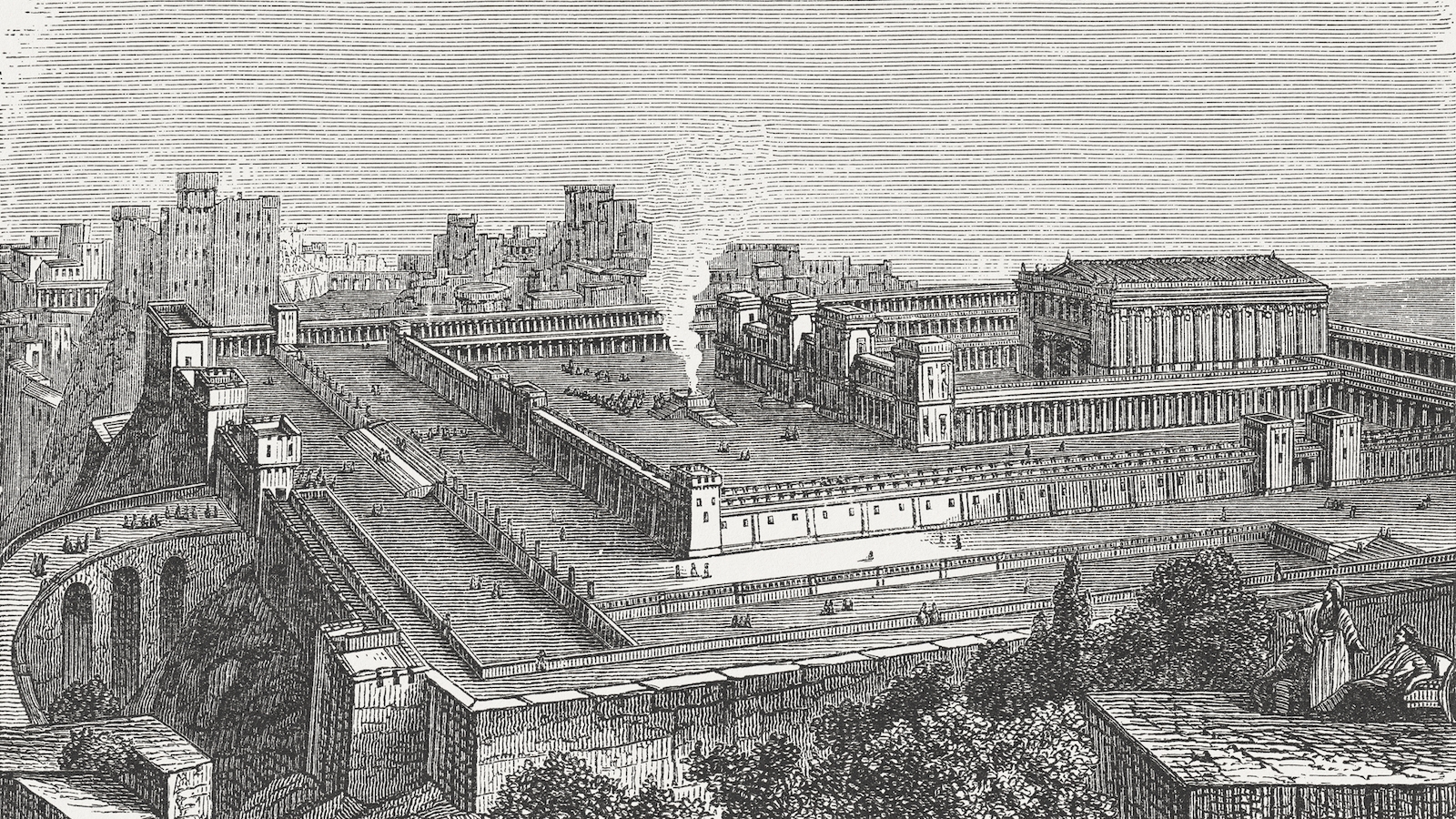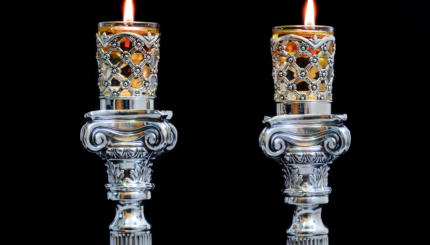8:2. All the men of Israel gathered before King Solomon at the Feast, in the month of Ethanim — that is, the seventh month
8:3. When all the elders of Israel had come, the priests lifted the Ark
8:4. and carried up the Ark of the LORD. Then the priests and the Levites brought the Tent of Meeting and all the holy vessels that were in the Tent.

Help us keep Jewish knowledge accessible to millions of people around the world.
Your donation to My Jewish Learning fuels endless journeys of Jewish discovery. With your help, My Jewish Learning can continue to provide nonstop opportunities for learning, connection and growth.
8:5. Meanwhile, King Solomon and the whole community of Israel, who were assembled with him before the Ark, were sacrificing sheep and oxen in such abundance that they could not be numbered or counted.
8:6. The priests brought the Ark of the LORD’S Covenant to its place underneath the wings of the cherubim, in the Shrine of the House, in the Holy of Holies;
8:7. for the cherubim had their wings spread out over the place of the Ark, so that the cherubim shielded the Ark and its poles from above.
8:8. The poles projected so that the ends of the poles were visible in the Sanctuary in front of the Shrine, but they could not be seen outside; and there they remain to this day.
8:9. There was nothing inside the Ark but the two tablets of stone which Moses placed there at Horeb, when the LORD made [a covenant] with the Israelites after their departure from the land of Egypt.
8:10. When the priests came out of the sanctuary — for the cloud had filled the House of the LORD
8:11. and the priests were not able to remain and perform the service because of the cloud, for the Presence of the LORD filled the House of the LORD —
8:12. then Solomon declared:
“The LORD has chosen
To abide in a thick cloud:
8:13. I have now built for You A stately House,
A place where You May dwell forever.”
8:14. Then, with the whole congregation of Israel standing, the king faced about and blessed the whole congregation of Israel.
8:15. He said:
“Praised be the LORD, the God of Israel, who has fulfilled with deeds the promise He made to my father David. For He said,
8:16. ‘Ever since I brought My people Israel out of Egypt, I have not chosen a city among all the tribes of Israel for building a House where My name might abide; but I have chosen David to rule My people Israel.’
8:17. “Now my father David had intended to build a House for the name of the LORD, the God of Israel.
8:18. But the LORD said to my father David, ‘As regards your intention to build a House for My name, you did right to have that intention.
8:19. However, you shall not build the House yourself; instead, your son, the issue of your loins, shall build the House for My name.’
8:20. “And the LORD has fulfilled the promise that He made: I have succeeded my father David and have ascended the throne of Israel, as the LORD promised. I have built the House for the name of the LORD, the God of Israel;
8:21. and I have set a place there for the Ark, containing the covenant which the LORD made with our fathers when He brought them out from the land of Egypt.”
English translation is reprinted with permission from Tanakh: The Holy Scriptures published by the Jewish Publication Society.



